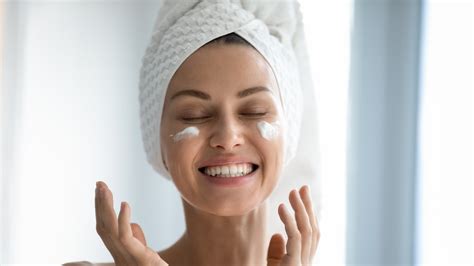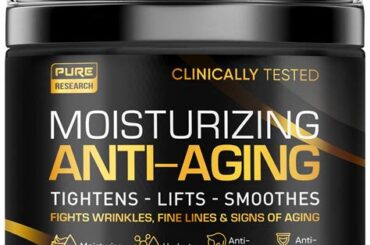The Truth About Chemicals in Skincare Products
When it comes to skincare products, there is a lot of misinformation out there, especially when it comes to chemicals. Many people have the misconception that chemicals are harmful and should be avoided at all costs. However, the truth is that not all chemicals are bad for your skin. In fact, many chemicals are actually beneficial and necessary for the effectiveness of skincare products.
The important thing to understand is that not all chemicals are created equal. Some chemicals, such as parabens and sulfates, have received a lot of negative attention in recent years. These chemicals have been linked to skin irritation and other potential health concerns. However, it is important to note that not all skincare products contain these harmful chemicals.
On the other hand, there are many chemicals that are safe and effective for use in skincare products. These chemicals are often used as preservatives, emulsifiers, or humectants, and play a crucial role in maintaining the stability and effectiveness of the product. For example, hyaluronic acid is a popular ingredient in many skincare products due to its ability to hydrate and plump the skin.
It is also worth noting that natural doesn’t always mean better. Many natural ingredients can be irritating or even allergenic to certain individuals. On the other hand, synthetic chemicals can be formulated to be gentle and non-irritating. The key is to look for products that have been thoroughly tested and approved by dermatologists or other skin experts.
- Chemicals in skincare products are not inherently bad for your skin.
- Not all chemicals are created equal, and some can have negative effects on the skin.
- Many safe and effective chemicals are used in skincare products to enhance their performance.
- Natural ingredients are not always better and can be irritating to some individuals.
- Focus on choosing products that have been tested and approved by experts.
| Chemicals | Effects on Skin | Suitable Products |
|---|---|---|
| Parabens | Potential skin irritation | Avoid skincare products with parabens |
| Sulfates | May cause dryness or irritation | Look for sulfate-free cleansers |
| Hyaluronic Acid | Hydrates and plumps the skin | Choose products with hyaluronic acid for added hydration |
| Fragrance | Can be sensitizing to some individuals | Opt for fragrance-free products if you have sensitive skin |
Busting the Myth of the ‘Perfect’ Skin Type
When it comes to skincare, there is a pervasive belief that there is a singular “perfect” skin type that we should all strive to achieve. However, the truth is that this notion is simply a myth. The concept of a perfect skin type implies that there is one ideal set of characteristics that every person’s skin should possess. This creates unrealistic expectations and can lead to feelings of inadequacy and frustration when our skin doesn’t meet these standards.
It’s important to understand that skin is a complex organ, and its condition is influenced by a wide range of factors including genetics, environment, lifestyle, and skincare routine. Each person’s skin is unique, and what works for one individual may not work for another. Skin types can vary greatly, from dry to oily, sensitive to combination. Trying to fit our skin into a predetermined category can be limiting and may prevent us from finding the most effective skincare routine for our specific needs.
Instead of striving for the “perfect” skin type, it is more beneficial to focus on understanding and embracing our individual skin’s needs. This involves paying attention to how our skin reacts to different products and ingredients, and adjusting our routine accordingly. By listening to our skin and addressing its specific concerns, we can achieve a healthier and more balanced complexion.
Unveiling the Real Benefits of Facial Oils
Facial oils have gained significant popularity in the skincare industry in recent years. Many people are intrigued by the idea of using oils on their face, but they may have concerns about the potential benefits and drawbacks. In this blog post, we will uncover the real benefits of facial oils and explore why they have become a favorite among skincare enthusiasts.
1. Deep Hydration: One of the main advantages of using facial oils is their ability to provide deep hydration to the skin. Unlike moisturizers that primarily work on the surface, facial oils penetrate deep into the skin, nourishing and moisturizing it from within. This helps to keep the skin plump, supple, and hydrated, giving it a healthy and youthful appearance.
2. Antioxidant Protection: Facial oils are rich in antioxidants, which help protect the skin from damage caused by free radicals. Free radicals are unstable molecules that can break down collagen and elastin, leading to premature aging and skin damage. By incorporating facial oils into your skincare routine, you can provide your skin with an extra layer of protection against environmental stressors and maintain a more youthful complexion.
3. Improved Skin Texture: Another significant benefit of facial oils is their ability to improve skin texture. Oils such as rosehip seed oil and jojoba oil are known for their high content of essential fatty acids and vitamins, which help to nourish and regenerate the skin. Regular use of facial oils can help smooth out uneven skin texture, reduce the appearance of fine lines and wrinkles, and promote a more refined and radiant complexion.
4. Balance and Calmness: Contrary to popular belief, facial oils can be beneficial for oily and acne-prone skin as well. The right blend of oils can help regulate the skin’s oil production and maintain a healthy balance. Some oils, such as tea tree oil and lavender oil, are known for their anti-inflammatory and soothing properties, which can help calm irritated skin and reduce redness. By incorporating facial oils into your routine, you can achieve a more balanced and calmer complexion.
Conclusion: Facial oils offer a wide range of benefits for your skin. From deep hydration and antioxidant protection to improved texture and balance, incorporating facial oils into your skincare routine can help enhance your overall complexion. However, it’s essential to choose the right oils for your skin type and concerns. Consulting with a dermatologist or skincare professional can help you find the best facial oils and create a tailored skincare routine that suits your needs.
The Science behind Sunscreen: Debunking SPF Myths
When it comes to skincare, there is one product that is considered an absolute must-have: sunscreen. We have all heard about the importance of protecting our skin from the damaging effects of the sun, but there are still many myths and misconceptions surrounding SPF (Sun Protection Factor) and sunscreen. In this blog post, we will dive deep into the science behind sunscreen and debunk some common SPF myths.
1. Sunscreen only needs to be worn on sunny days. This is perhaps one of the most common myths about SPF. The truth is, the sun’s harmful UV rays can still penetrate through the clouds and reach your skin, even on cloudy or overcast days. Therefore, it is crucial to wear sunscreen year-round, regardless of the weather conditions.
2. The higher the SPF, the better the protection. While it may seem logical to assume that a higher SPF offers better protection, the reality is a bit more nuanced. SPF measures the amount of protection against UVB rays, which are primarily responsible for sunburn. However, it does not indicate the level of protection against UVA rays, which can also cause significant damage to the skin. Therefore, it is essential to choose a sunscreen that provides broad-spectrum protection, shielding both UVA and UVB rays, regardless of the SPF number.
3. Applying sunscreen once a day is enough. Many people believe that applying sunscreen in the morning will provide protection throughout the entire day. However, this is not the case. Sunscreen should be reapplied every two hours, or more frequently if you are sweating or swimming, to maintain its efficacy. Additionally, applying an adequate amount of sunscreen is crucial for it to be effective. As a general rule, use about a teaspoon for your face and a shot glass amount for your body.
| Myth | Fact |
|---|---|
| Higher SPF offers complete protection. | SPF values indicate protection against UVB rays, not UVA. |
| Sunscreen prevents vitamin D synthesis. | Proper use of sunscreen does not hinder vitamin D production. |
| Sunscreen is only needed on the beach. | UV rays can reach your skin even on cloudy or winter days. |
It is important to separate fact from fiction when it comes to sunscreen and SPF. By understanding the science behind sunscreen and debunking these common myths, we can better protect our skin from the harmful effects of the sun. Remember to always wear sunscreen, reapply it regularly, and look for broad-spectrum protection to shield your skin effectively.
Demystifying the Link Between Diet and Skin Health
The link between diet and skin health is a topic that has garnered a lot of attention in recent years. Many people are starting to realize that what we put into our bodies can have a significant impact on how our skin looks and feels. But what exactly is this link? Is it just a myth or is there scientific evidence to support it? In this blog post, we will demystify the connection between our diet and the health of our skin.
Firstly, it is important to understand that our skin is the largest organ in our body, and like any other organ, it requires appropriate nutrition to function optimally. The nutrients we consume from our diet play a vital role in supporting the health and integrity of our skin. Research has shown that certain vitamins, minerals, and antioxidants found in various foods can have a positive impact on skin health.
For example, vitamin C is known to be crucial for the production of collagen, a protein that gives our skin strength and structure. This vitamin is found in abundance in fruits and vegetables such as oranges, strawberries, bell peppers, and spinach. Including these foods in our diet can help promote collagen synthesis and maintain youthful-looking skin.
- Vitamin E, another powerful antioxidant, is often lauded for its ability to protect the skin against damage caused by free radicals. Foods rich in vitamin E include nuts, seeds, avocado, and olive oil. Including these sources of vitamin E in our diet can potentially help prevent premature aging and maintain skin elasticity.
- Omega-3 fatty acids, commonly found in fatty fish like salmon and mackerel, have been shown to have anti-inflammatory properties. Inflammation in the body can contribute to various skin conditions, such as acne and eczema. By incorporating foods high in omega-3 fatty acids into our diet, we may be able to reduce inflammation and improve the overall health of our skin.
- Water is often overlooked but is undoubtedly essential for healthy skin. Staying adequately hydrated helps maintain the skin’s moisture balance, flush out toxins, and improve overall skin complexion. Therefore, it is crucial to drink enough water throughout the day to support proper skin hydration.
In addition to these individual nutrients, various studies have also explored the impact of overall dietary patterns on skin health. For instance, a diet rich in fruits, vegetables, whole grains, and lean proteins has been associated with a lower risk of developing skin problems. On the other hand, a diet high in processed foods, refined sugars, and unhealthy fats may contribute to skin inflammation and acne.
| Food Group | Examples |
|---|---|
| Fruits and Vegetables | Oranges, strawberries, bell peppers, spinach |
| Healthy Fats | Nuts, seeds, avocado, olive oil |
| Fatty Fish | Salmon, mackerel |
| Whole Grains | Brown rice, quinoa, whole wheat bread |
| Lean Proteins | Chicken breast, tofu, beans |
While more research is still needed to fully understand the complexities of the link between diet and skin health, there is growing evidence to support the notion that what we eat can indeed impact our skin. Therefore, it is essential to adopt a balanced and nutritious diet to nourish our skin from the inside out. By making conscious choices and incorporating skin-friendly foods into our meals, we can potentially achieve healthier and more radiant skin.
Frequently Asked Questions
Example Question 1: Are Chemicals in Skincare Products harmful for the skin?
Contrary to popular belief, not all chemicals in skincare products are harmful. Many skincare products contain safe and effective ingredients that have been extensively tested and approved for use. It’s important to note that the term “chemical” itself refers to any substance, natural or synthetic, and not all chemicals are harmful or toxic.
Example Question 2: Is there really a ‘perfect’ skin type?
No, there is no such thing as a universally ‘perfect’ skin type. Each individual’s skin is unique and has its own specific needs and characteristics. Some people may have naturally oily skin, while others may have dry or combination skin. It’s important to understand and embrace your own skin type, and adjust your skincare routine accordingly.
Example Question 3: What are the actual benefits of facial oils?
Facial oils can provide numerous benefits to the skin. They help to hydrate and nourish the skin, improve its elasticity, and create a protective barrier against environmental damage. Facial oils are also rich in antioxidants and essential fatty acids, which can help to reduce inflammation, rejuvenate the skin, and promote a healthy complexion.
Example Question 4: Are there any SPF myths surrounding sunscreen?
Yes, there are several SPF myths that need debunking. One common myth is that higher SPF numbers offer significantly better protection, when in reality, the difference is minimal. Another myth is that you don’t need sunscreen on cloudy days, but UV rays can still penetrate through clouds. It’s important to apply sunscreen regardless of the weather conditions and reapply regularly for maximum protection.
Example Question 5: Is there a direct link between diet and skin health?
Yes, there is a strong link between diet and skin health. A balanced and nutritious diet can promote a radiant and healthy complexion. Certain nutrients like vitamins A, C, and E, as well as omega-3 fatty acids, can help to maintain the skin’s elasticity, protect against oxidative stress, and improve overall skin health. On the other hand, a poor diet high in processed foods and sugar can contribute to skin issues such as acne and inflammation.
Example Question 6: How do Chemicals in Skincare Products affect the skin?
The effects of chemicals in skincare products depend on the specific ingredients and their concentration. While some chemicals can be irritating or drying to the skin, others can be beneficial and improve its appearance. It’s important to read product labels, understand the ingredients, and choose skincare products that are suitable for your skin type and concerns.
Example Question 7: What should I consider when choosing Sunscreen?
When choosing sunscreen, there are several factors to consider. Look for a broad-spectrum sunscreen that protects against both UVA and UVB rays. Consider your skin type and choose a sunscreen with an appropriate SPF level. Additionally, opt for a sunscreen that suits your lifestyle and preferences, whether it’s a lightweight formula, water-resistant, or suitable for sensitive skin.





